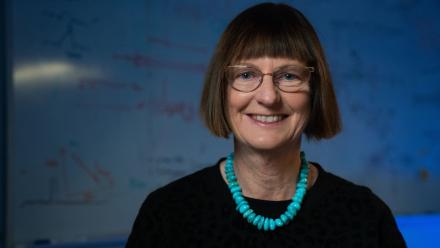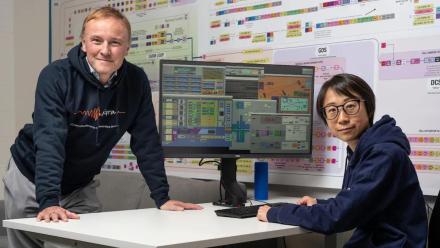Aussie unis to help refugees access higher education
The Â鶹´«Ã½AV National University (ANU) has announced the creation of a new university consortium to help build pathways to higher education for refugees from around the world.
The Â鶹´«Ã½AV Refugee Welcome University Sponsorship Consortium (ARWUSC) brings together, under the leadership of ANU, 12 universities each with strong commitments to social impact. This nationwide alliance will work to co-design a blueprint for a proposed new, ground-breaking, education-led pathway for refugee resettlement in Australia.
Professor Bronwyn Parry, from ANU and co-lead of ARWUSC, said the new consortium "marks an exciting new chapter in Australia's refugee resettlement story."
"Refugees have historically made a very important contribution to modern Australia, building the successful, harmonious multicultural society we have today. They have also made significant inputs to our economy and can play a key role in driving our future prosperity and social wellbeing," Professor Parry said.
"ARWUSC aims to create life-changing resettlement and educational opportunities for hundreds of students who have been displaced by conflict in recent times, offering them the chance to re-start their educational journeys and to bring their skill and expertise to Australia.
"The consortium will represent the higher education sector and intends to work closely with the Federal Government and other key organisations in the not-for-profit and business sectors, including the Refugee Council of Australia, to explore ways to introduce global best practice models of refugee education into Australia.
"No such coordinating body currently exists in Â鶹´«Ã½AV higher education, but is it essential - not only to secure the future of currently displaced students around the globe but also to help them to realise their full potential as future citizens of Australia.
"ANU and the 11 universities we are partnering with are excited to be playing a major role in this important endeavour."

The ARWUSC consortium currently includes Charles Sturt University, Curtin University, Deakin University, Griffith University, the University of Canberra, the University of Melbourne, the University of South Australia, the University of Technology Sydney, the University of Tasmania and Victoria University.
"But we look forward to expanding the partnership as other universities join," Professor Parry said.
As part of their work, the ARSWUC has been co-designing a blueprint for a proposed new refugee education pathway with the Federal Government.
The establishment of ARWUSC follows the government's commitment to increase the annual Refugee and Humanitarian Program to 20,000 places in 2023-24, and to welcome an additional 10,000 refugees over time through complementary pathways.
ANU Vice-Chancellor Professor Brian Schmidt said ARWUSC was a "welcome response to a global call to action" that would deliver benefits to Australia for decades to come.
"We know education is the key to a new life," Professor Schmidt said. "And this is especially the case for people who, through no fault of their own, find themselves displaced or far from home.
"Global displacement has reached the highest level on record. By mid-2022, there were more than 32 million refugees around the world.
"Yet, fewer than a quarter of refugee youth have access to secondary education and only six per cent are enrolled in tertiary education. Education is a fundamental tool for people facing forced migration: with it they can build skills and qualifications, options, and hope.
"Sadly, many extremely talented young people have their educational journey disrupted by conflict, and this risk has never been greater given the current global crises in Afghanistan, Sudan, and more recently in Gaza and the Middle East.
"We need to do something to address this, and this team of higher education experts, led by ANU, is leading the charge with the help of the Â鶹´«Ã½AV Government."
Dr Sally Baker, Associate Professor of Migration and Education at ANU and co-leader of ARWUSC, said the consortium offers a way of realising the clear desire from university students, staff and alumni to do more to support refugees with their educational ambitions.
"Working together to create new refugee education opportunities will not only give more refugees access to education and protection in Australia, it will also benefit Â鶹´«Ã½AV society by increasing the understanding and welcoming of refugees, and boosting the economy through the contributions of highly educated and networked refugee graduates," Associate Professor Baker said.
"Most importantly, it will help people in need build a better future-this is exactly what our universities are about."


